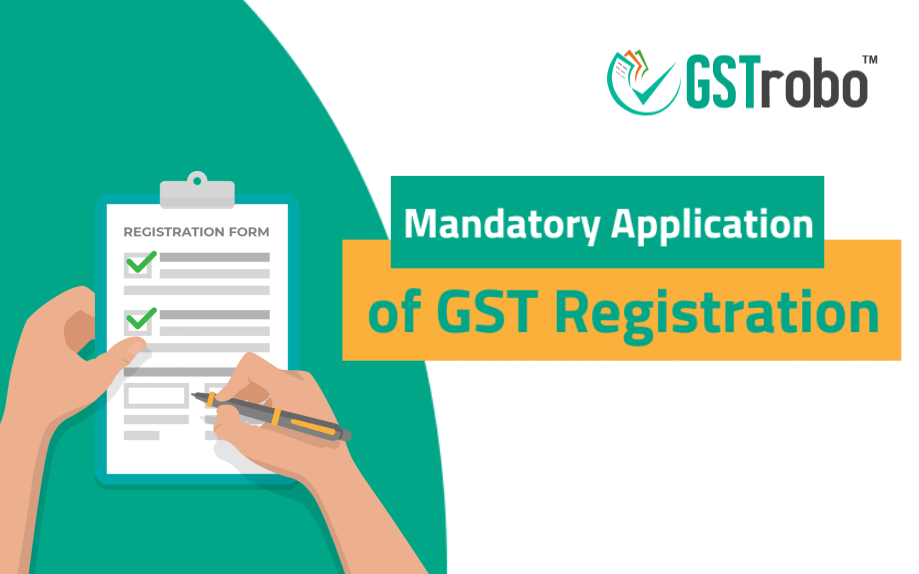Mandatory Application of GST Registration
The registration process of any person or business entity under the GST laws is known as GST registration. Once the registration completes, the GST authority issues a unique 15-digit identification number known as GSTIN. So, in this blog, we will know the mandatory application of GST registration.

Mandatory Application of GST Registration Categories
We have divided the mandatory application of GST registration into two categories
- Mandatory application of GST registration based on Turnover, and
- Mandatory application of GST registration irrespective of Turnover
Mandatory application of GST registration based on Turnover
Every taxpayer who is supplying goods or/and services and whose aggregate turnover exceeds INR 20 Lakhs during the financial year needs to mandatory apply for GST registration.
In the case of special category States, this threshold limit of aggregate turnover is further reduced to INR 10 Lakhs during the previous financial year. Here is the list of special category state:
- Assam
- Himachal Pradesh (HP)
- Uttarakhand (UK)
- Jammu & Kashmir (J&K)
- Arunachal Pradesh (AP)
- Mizoram
- Nagaland
- Sikkim
- Tripura
- Manipur
- Meghalaya
Mandatory application of GST Registration Irrespective of Turnover
Here is the list of taxpayers who needs to apply for GST registration irrespective of turnover mandatorily:
- Any taxpayer who is supplying goods or/and services inter-state
- Any taxpayer who is a casual taxable person (CTP)
- Any taxpayer who need to pay the tax liability under the reverse charge mechanism (RCM)
- Any person who is registered as an e-commerce operator
- Any non-resident taxable persons (NRTP) making taxable supply.
- Any person who is deducting taxes (TDS deductors)
- Any person who supplies goods or/and services on behalf of other taxable persons such as agent
- Any person who distributes ITC to his/her/its related branches (Input Service Distributor)
- Any person who collects taxes (TCS collectors)
- Any person who is located outside the Indian Territory, providing online information and database access or retrieval (OIDAR) services to a person situated within the Indian Territory.
- Any other person or class of persons notified by the Government of India on the recommendations of the GST Council
- Merger or de-merger of business
Documents Required for GST registration
- Here is the list of documents that are typically required for GST registration
- Permanent Account Number (PAN)
- AADHAAR Card
- Business registration certificate (Incorporation certificate) in case of business
- Identity proof of the applicant
- Address proof of the applicant
- Bank statement or canceled cheque of the applicant
- Digital signature
- Authorization letter for authorized signatory
Penalty for Late Registering or Not Registering under GST
The quantum of penalty in the case when a person fails to obtain GST registration or applies late for GST registration remains the same. The person is bound to pay the following penalty amount in both cases:
INR 10,000 or Amount of Tax Evaded; whichever is Higher
Let us understand this with an example
If Mr. X and Mr. Y both failed to obtain GST registration.
Wherein Mr. X evaded INR 20,000 and Mr. Y Evaded INR 5,000.
Then as per the law, Mr. X will have to pay INR 20,000 as the penalty and Mr. Y has to pay INR 10,000 as the penalty for not registering under GST.
Other Consequences of Not Registering under GST
If a person is bound to obtain GST registration but fails to do so, then there are other consequences too apart from penalization. They are:
- Detention of goods or/and vehicle
- Confiscation of goods or/and vehicle
- Input tax credit (ITC) cannot be claimed or transferred
